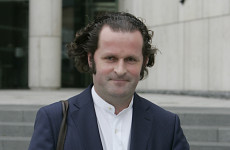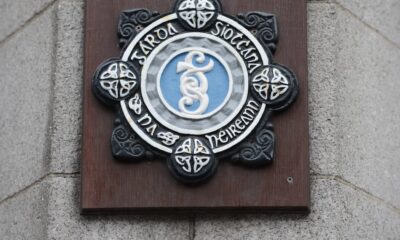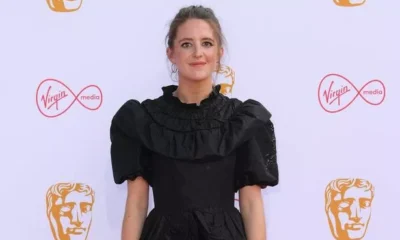Business
Met officers could have to reveal Freemason ties

Read full article on post.
 In Pictures via Getty Images
In Pictures via Getty ImagesOfficers in the Metropolitan Police could soon be made to tell bosses if they are part of the Freemasons.
The UK’s largest force has started a consultation on adding the group to its declarable associations policy.
Freemasons take an oath of loyalty to the fraternity’s principles and promise to support fellow members but staff association the Metropolitan Police Federation said the move may violate officers’ human rights.
The Met does not currently record how many officers are Masons, and has never banned them from joining, but said concerns had been raised by officers and staff about the impact that membership of such a group could be having on “investigations, promotions and misconduct”.
Existing examples of declarable associations include people with criminal convictions, those dismissed from policing, and lawful professions such as private investigation or journalism.
Officers and staff already have to declare any association with an individual or group that might compromise their integrity or damage the reputation of the force.
The move was recommended by the Daniel Morgan Independent Panel report, which looked at the force’s handling of the unsolved murder of private detective Daniel Morgan.
The 37-year-old father of two was killed with an axe in the car park of the Golden Lion pub in Sydenham, south-east London, in 1987.
A string of inquiries over the decades unearthed allegations of corruption.
The 2021 report said police officers’ membership of the Freemasons had been “a source of recurring suspicion and mistrust in the investigations”.
‘Where does it end?’
Matt Cane, general secretary of the Met’s Police Federation, which represents officers from constables to chief inspectors, said the force’s plan could breach the European Convention on Human Rights on the right to a private and family life and freedom of assembly and association.
He said the federation would oppose the proposal and challenge any punitive process designed to enforce it.
He added: “The Metropolitan Police has debated the issue of Freemasonry for decades, and it is curious as to why, now, it seeks to impose yet another unenforceable policy that infringes on officers’ rights.
“Where does it end?
“Will membership of golf clubs, religious organisations, or even the Women’s Institute be next?”
The Freemasons’ United Grand Lodge of England said its members must declare if their membership has any relevance to their work.
It said a “blanket declaration requirement is a violation of officers’ fundamental human rights to privacy and freedom of association”.
It added: “We require all members to adhere to the laws of the land – without exception.
“For three centuries, Freemasons have remained steadfast in our commitment to the enduring principles of integrity, friendship, respect and service. This will continue.”
What are Freemasons?
Freemasonry is a centuries-old fraternal organisation with about six million members worldwide, including more than 200,000 in England and Wales.
Its roots lie in the medieval stonemasons’ guilds, and members still meet in “lodges” to carry out secretive initiation rituals and ceremonies based on allegories such as the building of King Solomon’s Temple.
Freemasonry in England was, for 200 years, only open to men. That changed in the 20th Century, but lodges remain men-only or women-only.
Freemasons wear symbolic aprons and progress through degrees of membership, with the phrase “giving someone the third degree” originating from its final stage of initiation.
The group presents itself as focused on fellowship, moral development and charity, and is among the UK’s biggest charitable donors.
Famous past members have included Winston Churchill, Arthur Conan Doyle and Oscar Wilde.
 Gamma-Keystone via Getty Images
Gamma-Keystone via Getty Images‘Conflict of loyalties’
Met Cdr Simon Messinger said the force was consulting on a proposal to add Freemasonry to its list of declarable associations, as well as “potentially other organisations that could call impartiality into question or give rise to conflict of loyalties”. He added that bosses were keen to hear the views of Met officers and staff.
He said officers would not be prevented from joining the Freemasons or similar organisations, but they would need to tell their superiors under the plans.
“Strengthening the trust both our own staff and London’s communities have in the Met is a core part of our New Met for London plan and ambitions,” Cdr Messinger added.
Senior officers will be discussing the proposed policy change with the United Grand Lodge of England, the headquarters of Freemasonry in England and Wales.
The Met said it now had one of the strongest entry vetting policies in UK policing and refusal rates had more than doubled from 5% in 2020-21 to 11% in 2023-24.
London Mayor Sir Sadiq Khan, who is responsible for setting the strategic direction of policing in London, has previously ruled out a compulsory register of Freemasonry in the Met, saying it could infringe officers’ human rights.
A spokesperson for the mayor said improving standards in the Met “involves looking at organisations, including the Freemasons, and consulting to see if membership of these groups could call impartiality into question or give rise to any conflicts of loyalty when it comes to investigations, misconduct and promotions”.










